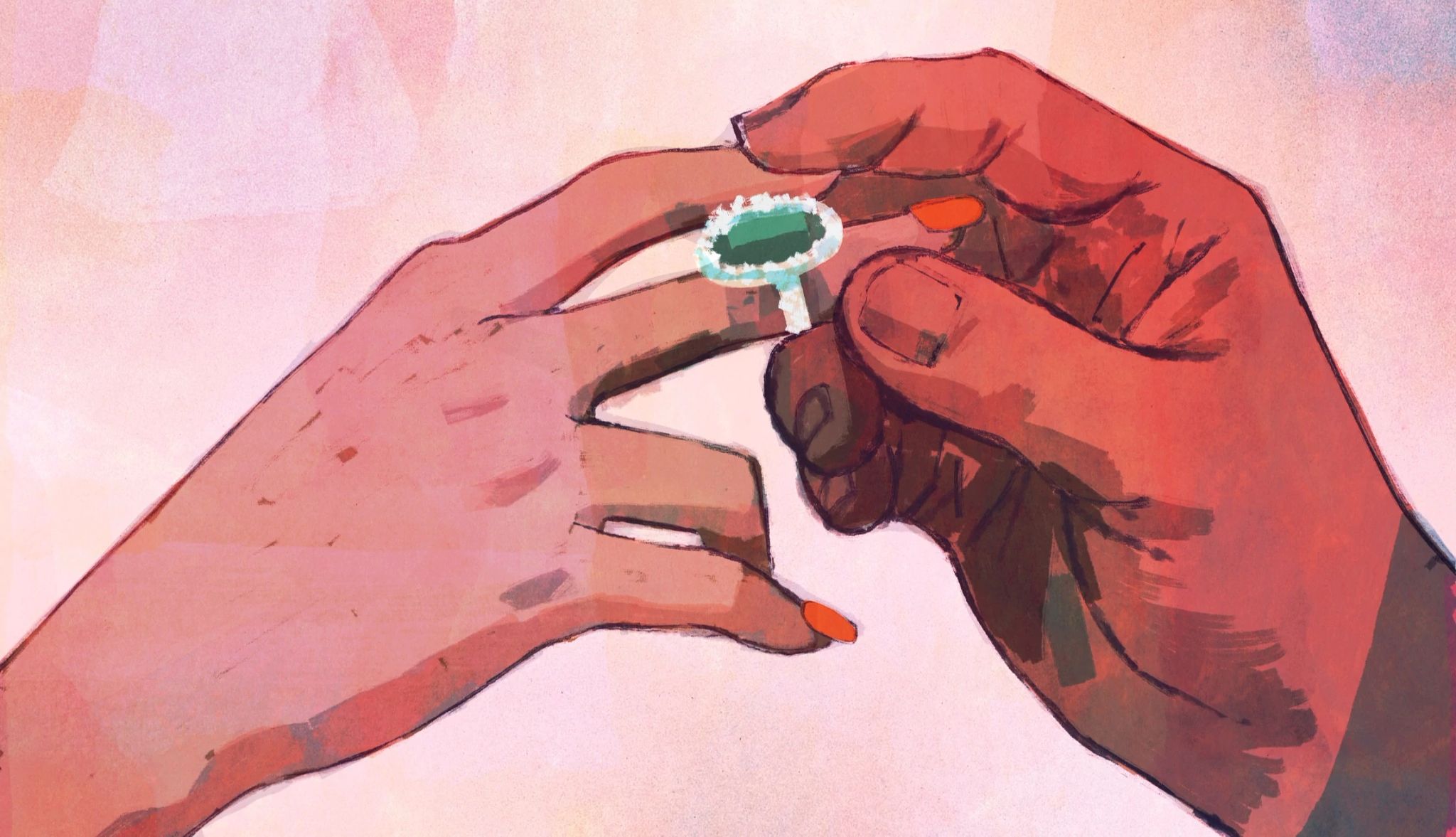AARP Hearing Center


Jump to chapters
Chapter 35
I MUST ADMIT the truth: I am enjoying my day with K. Burke.
She is constantly refreshing, authentic. She has a complete honesty to her behavior. On the job she is not always charming, but here she always is. Burke is like a provincial schoolgirl on her first trip to Paris—wide-eyed and enthusiastic, but never irritating or vulgar. Burke has the purity that I have experienced in one other woman.
“We are going someplace really special now,” I say.
“Galeries Lafayette was special enough for me,” she says.
“Cease the humility, K. Burke. Where we are going next is...is almost...”
“Incroyable?”
“Oui. Almost unbelievable.”
“It is only a short walk. It is on the Place Vendôme. But the drizzle is still drizzling. I’ll try to get us a taxi.”
“No, we’ll walk,” she says.
“But the rain. It is cold. It is icy.”
“We’ll walk.”
So we walk, and I try to remember not to “stroll.” K. Burke can’t get enough of the Parisian excitement. Her head seems as if it’s attached to a well-oiled fulcrum that allows her to snap her eyes from side to side in only a second.
We pass the furriers and jewelers and even the occasional hat store on our walk. Then, in front of a chocolate shop, of all places, I make a grave error.
“If there’s anything you want, just say so, and we can get it,” I say.
She stops walking. The smile leaves her face, and her head remains motionless.
“I don’t want you to buy me anything...anything. I shouldn’t have let you buy those expensive scarves for my cousins. I don’t want things. Frankly, if you want to give me something, do it by giving yourself a gift...the gift of joy, some peace. What would truly make me happy is for you to be happy.”
She brushes her cheeks with her hand, and I cannot be sure whether she is brushing away tears or merely brushing away the icy drizzle.
“You are a true friend, K. Burke,” I say.
“I try to be,” she says, her voice choking just a bit. “But it’s hard to be a friend to a lucky man who has had some very bad luck.”
“You are doing just fine,” I say.
We continue our walk.
We are about to turn onto the Place Vendôme when she says, “By the way, Moncrief, you can stroll if you want to.”
“I am walking slow because I am contemplating a problem,” I say.
Burke looks nervous, serious.
“What’s the matter?” she says.
“I have a problem that only you can solve.”
“And that is?”
“That is this: we are going to a place where I had planned on purchasing you a combination Christmas–New Years–Friendship–Thank You gift. And now you say...” (I do a comic imitation of an angry woman) “I don’t want you to buy me anything!”
“That’s the problem?” she says.
“For me, that is a problem. Can you solve it?”
“Okay, mon ami. You may buy me one more thing. Just one. And then that’s it.”
Chapter 36
THE FLAG THAT is pinned over the doorway is not too big, not too small. It is surely not an elegant sign, although the small building itself is a beautifully designed nineteenth-century town house. The sign is wet from the rain, so it is wrinkled in many spots. Dark- purple letters—only three letters—are printed against a white background.
JAR
Quite logically K. Burke says, “Is it a store that sells jars? Or do the letters stand for something?”
“The letters stand for something,” I say. “It is a man’s name. Joel Arthur Rosenthal. He is the finest jeweler in the world, and, not surprisingly, he is here in Paris.”
“Moncrief, when I said one more gift, I did not say jewelry. This is out of the question. I’m not going to allow...”
I put an index finger gently on her lips.
“I am going to ring the bell. I have an appointment. Let’s try to keep our voices down.”
Within seconds we are greeted by a very handsome young man in gray slacks and a blue blazer. We exchange greetings in French, and then I introduce him to Detective Burke.
“Mademoiselle Katherine Burke, je voudrais vous presenter Richard Ranftle, the assistant to Monsieur Rosenthal.”
“Je suis enchanté, Mademoiselle. I am also very much admiring of your coat. The North Face ski jacket has become everyone’s favorite.”
“Merci, Richard,” Burke says. Then she smiles at me.




































































You Might Also Like
Free Books Online for Your Reading Pleasure
Gripping mysteries and other novels by popular authors available in their entirety for AARP membersWhat We Can Learn From the Japanese About Finding Purpose
‘Ikigai’ means making your life worthwhile — here is how you can implement it
'Midnight at the Blackbird Café' Chapters 1 & 2
'Midnight at the Blackbird Café' Chapters 1 & 2